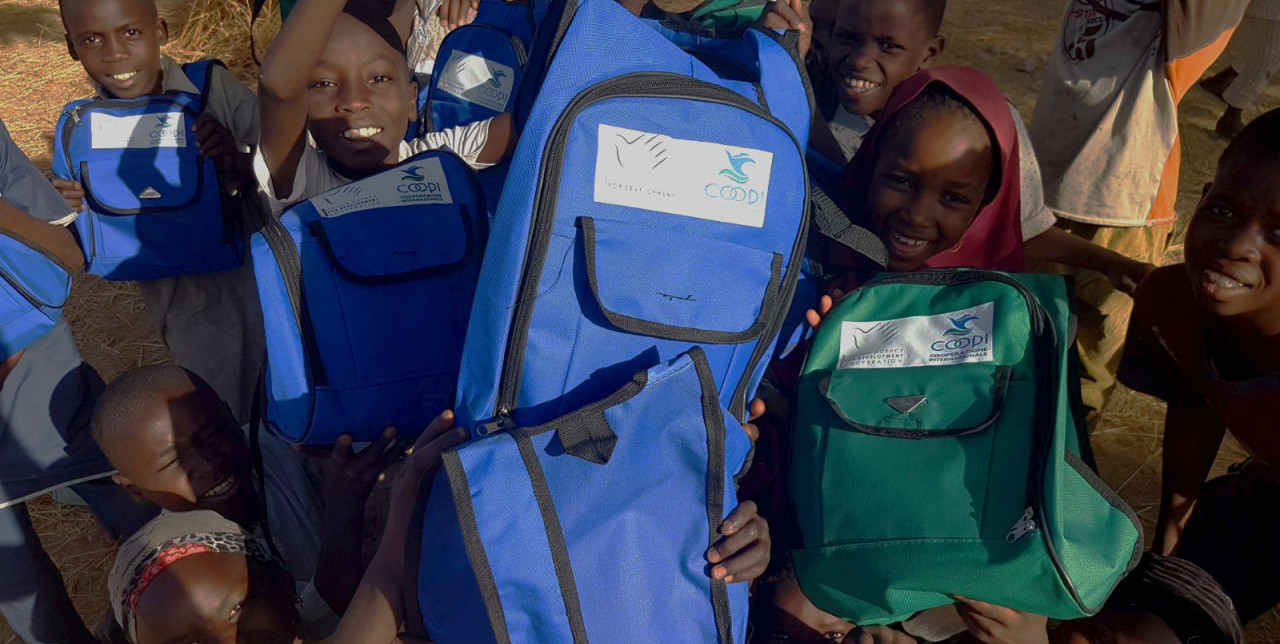15-03-2018 | di COOPI
Nigeria: schools, programs and education have been expanded
At the beginning of the school year, a partnership agreement was signed between COOPI and the Specialist educational Board SUBEB (State Universal Basic Education Board) of Borno State, with the aim “ to expand the access of school-age children to quality education (formal and non-formal) and psycho-social support.” Owing to this intervention, funded by AICS (Italian Agency for Cooperation and Development), 25 new formal school teachers and 92 community teachers joined the teaching staff of the 4 primary schools in the district of Bolori II, in Nigeria.
This collaboration allowed to open schools in the afternoon (up to then, open only in the morning), assuring the presence of qualified teachers and of a surveillance system with more than 20 persons in charge of security in a context where the risk of attacks is extremely high and school buildings are still a target. It also enabled more than 6,000 new students, mostly refugees, to resume a quality educational path alternative to life in the streets and mendicity.
This year was propaedeutic for them: a “bridge” toward a formal education that will welcome them from next year. Therefore, with the aim to assure a constant presence of the students, various school materials were distributed, with each student receiving a schoolbag, exercise books, pencils, pens, a pencil-sharpener, crayons, an eraser, a ruler, but not only. In fact, also soap and a dental prevention kit were distributed, with the aim to incentivize both children and families to adopt good hygiene practices.
Owing to the new school program, non-formal education classes are provided every Thursday, Friday and Saturday, from 1.30 p.m. to 6:00 p.m.; starting at 4:30 p.m. extracurricular activities are carried out, among which creative, sport and music laboratories, differentiated on the basis of the minors’ age and level of education (from 6 to 17 years old). The various activities aim at developing the minors’ personal, relational and communicative skills, involving also disabled children and adolescents identified in the community with the aim to fight against their social isolation.
The recreational activities (games and sports) are organized by the community teachers, with the support of COOPI’s psychologist and educators. The teachers of the formal school (in the morning) and those of the non-formal school (in the three afternoons), on the basis of the training received, organize awareness activities in class, differentiated on the basis of the students’ age and centered on the themes of gender, inclusion/integration of people with disabilities, good hygiene and environmental practices.
Finally, the project provided for the creation of suitable spaces outside the classrooms where it is possible to organize play-recreational activities, and a soccer and volleyball field for sport competitions, for the benefit of the entire community. In fact, these competitions are an opportunity for families to aggregate and enjoy recreational moments, while strengthening the social network of collaboration, solidarity and cohabitation between displaced persons and local families. In April 2018, 100 mango trees will be planted around the schools: a practical gesture to help children and adolescents imagine and “cultivate” their future, starting from the present.




 Nigeria
Nigeria